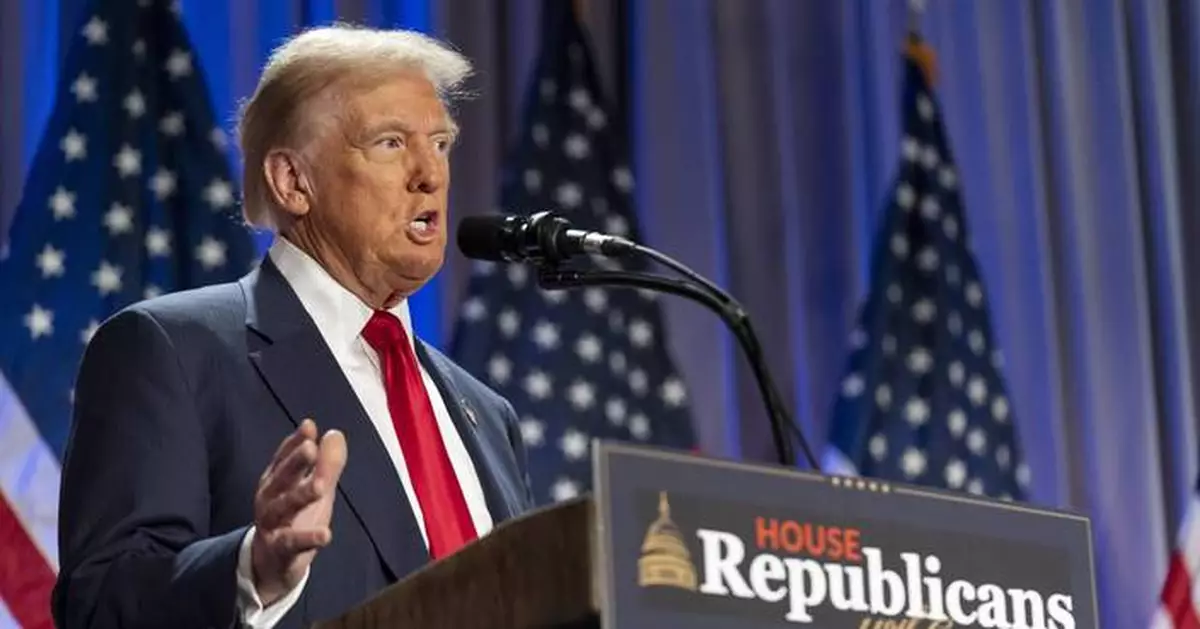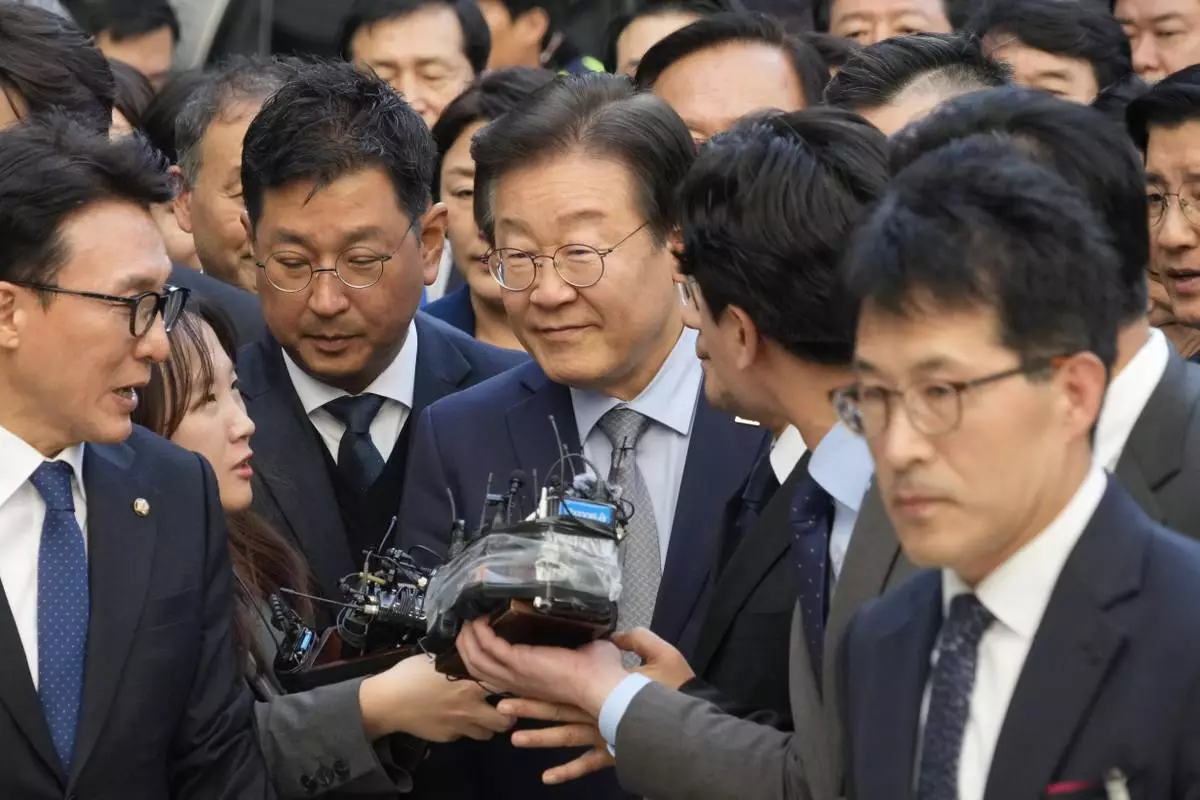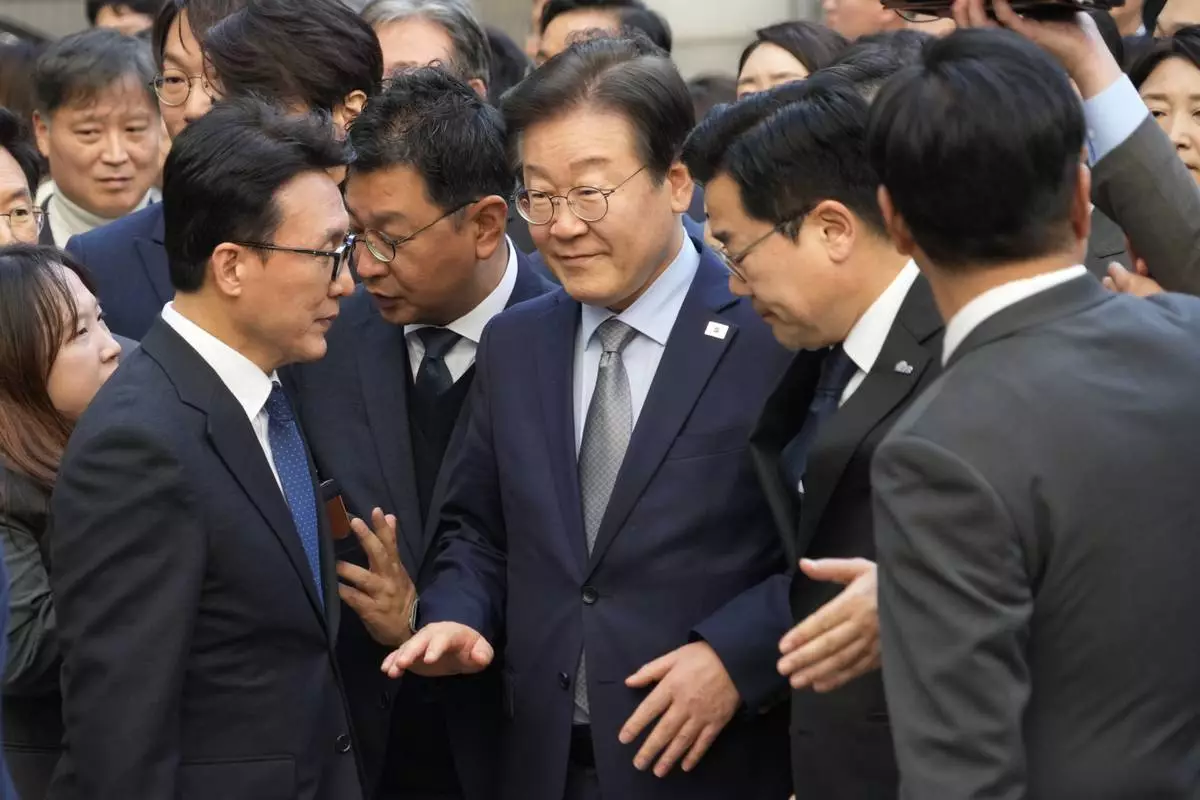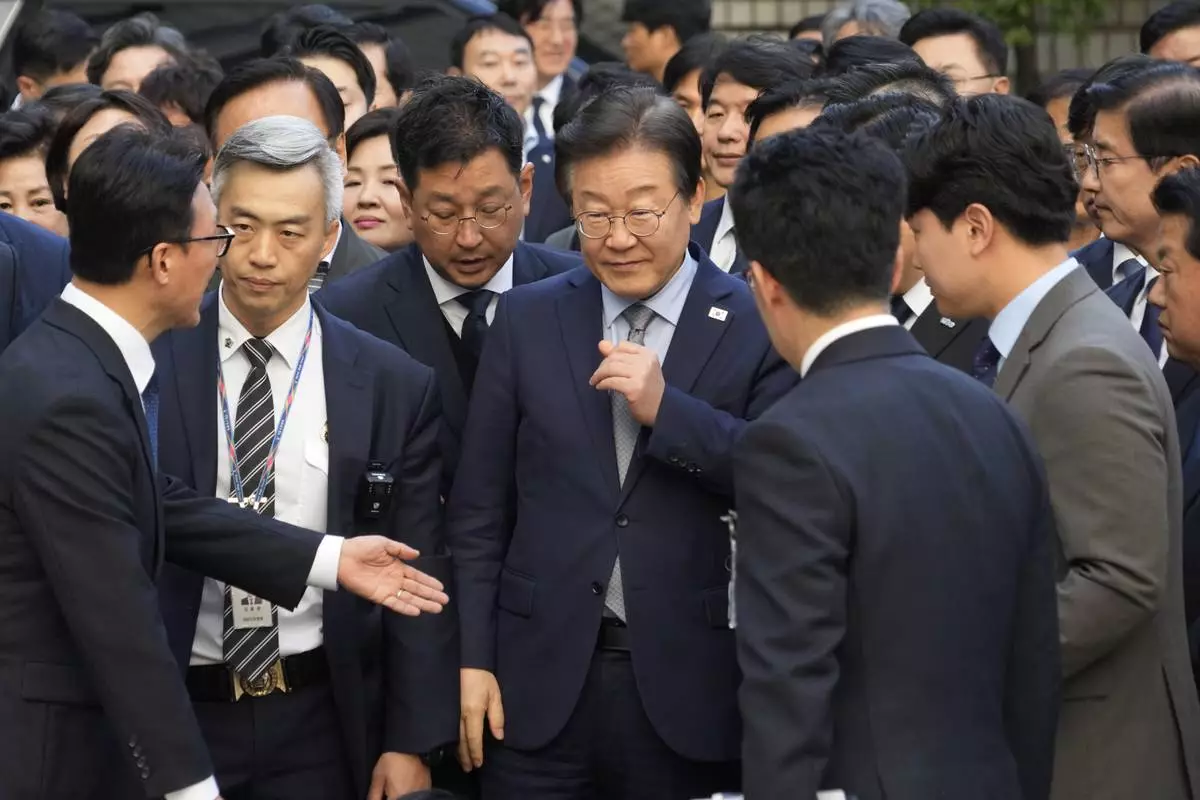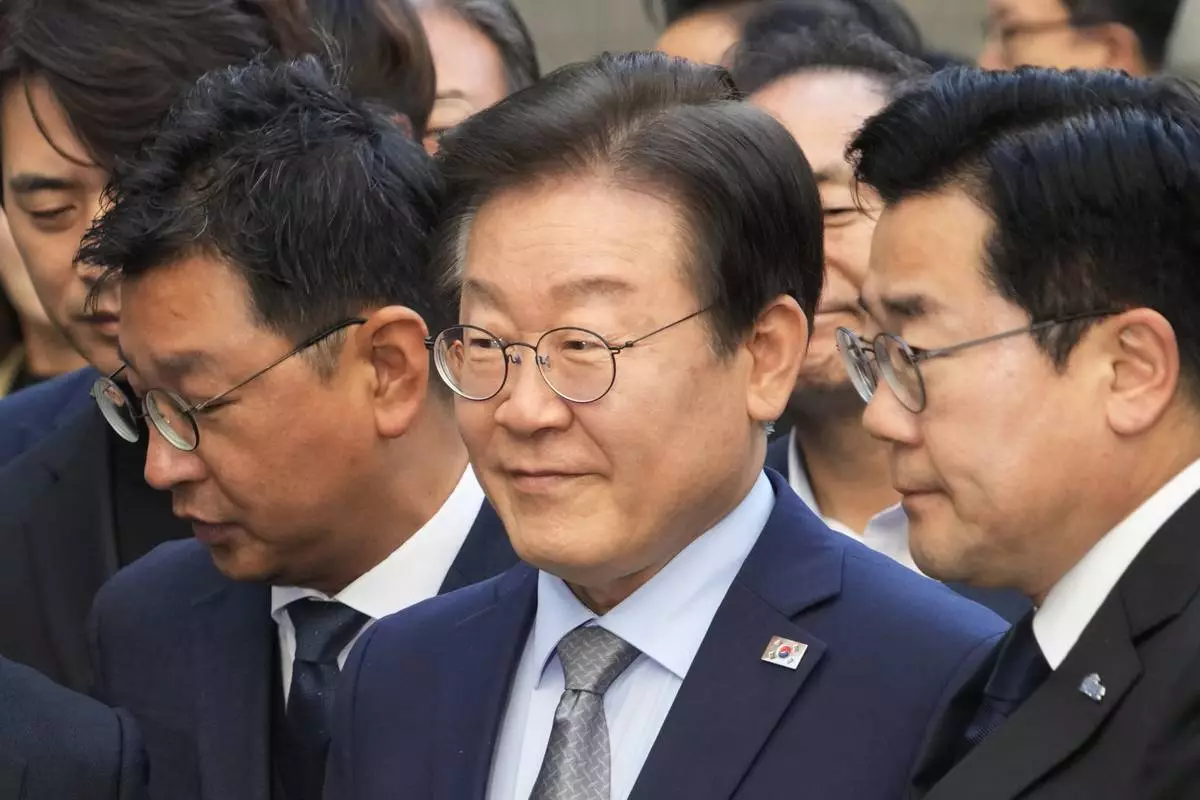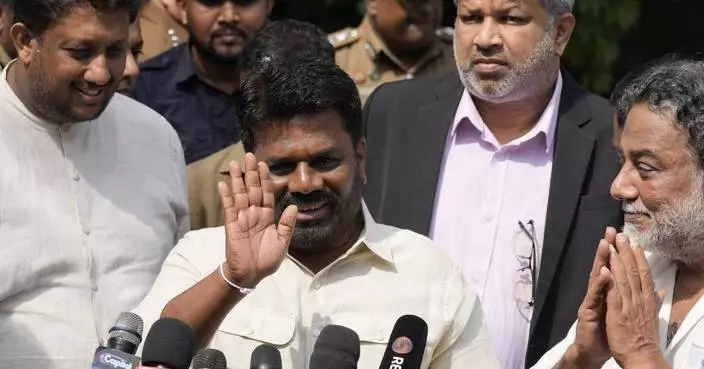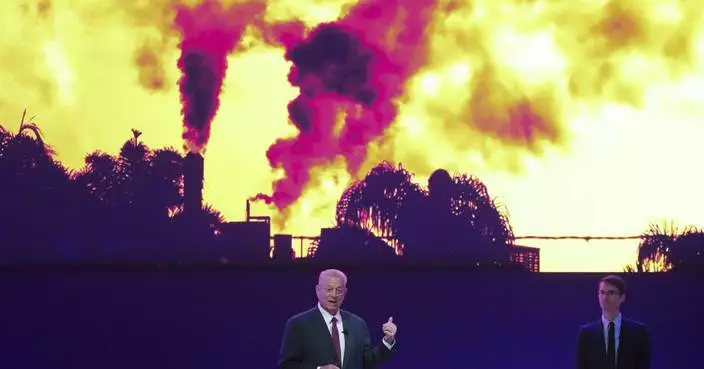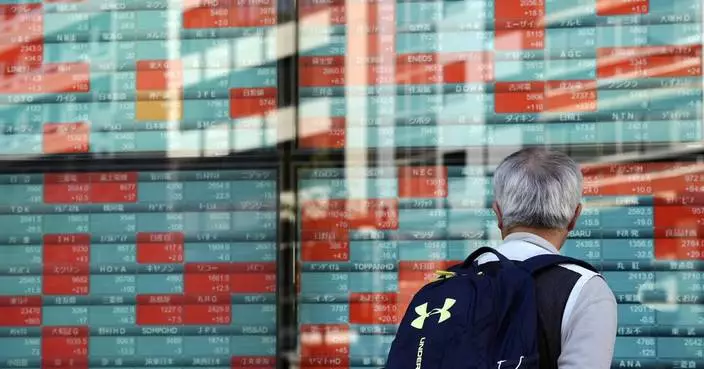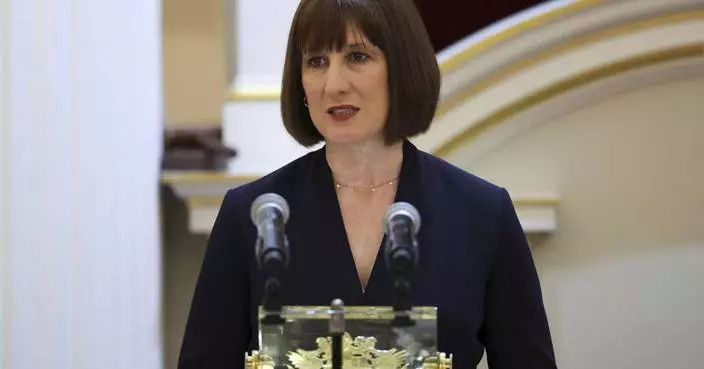WASHINGTON (AP) — Donald Trump's vision for education revolves around a single goal: to rid America’s schools of perceived “ wokeness ” and “left-wing indoctrination.”
The president-elect wants to keep transgender athletes out of girls’ sports. He wants to forbid classroom lessons on gender identity and structural racism. He wants to abolish diversity and inclusion offices.
Throughout his campaign, the Republican depicted schools as a political battleground to be won back from the left. Now that he’s won the White House, he plans to use federal money as leverage to advance his vision of education across the nation.
Trump’s education plan pledges to cut funding for schools that defy him on a multitude of issues.
On his first day in office, Trump has repeatedly said he will cut money to “any school pushing critical race theory, transgender insanity, and other inappropriate racial, sexual or political content on our children.” On the campaign trail, Trump said he would “not give one penny” to schools with vaccine or mask requirements.
He said it would be done through executive action, though even some of his supporters say he lacks the authority to make such swift and sweeping changes.
Trump’s opponents say his vision of America’s schools is warped by politics — that the type of liberal indoctrination he rails against is a fiction. They say his proposals will undermine public education and hurt the students who need schools' services the most.
“It's fear-based, non-factual information, and I would call it propaganda,” said Wil Del Pilar, senior vice president for Education Trust, a research and advocacy organization. “There is no evidence that students are being taught to question their sexuality in schools. There is no evidence that our American education system is full of maniacs.”
Trump's platform calls for “massive funding preferences” for states and schools that end teacher tenure, enact universal school choice programs and allow parents to elect school principals.
Perhaps his most ambitious promise is to shut down the U.S. Education Department entirely, a goal of conservative politicians for decades, saying it has been infiltrated by “radicals.”
America’s public K-12 schools get about 14% of their revenue from the federal government, mainly from programs targeting low-income students and special education. The vast majority of schools' money comes from local taxes and state governments.
Colleges rely more heavily on federal money, especially the grants and loans the government gives students to pay for tuition.
Trump's strongest tool to put schools' money on the line is his authority to enforce civil rights — the Education Department has the power to cut federal funding to schools and colleges that fail to follow civil rights laws.
The president can't immediately revoke money from large numbers of districts, but if he targets a few through civil rights inquiries, others are likely to fall in line, said Bob Eitel, president of the conservative Defense of Freedom Institute and an education official during Trump's first term. That authority could be used to go after schools and colleges that have diversity and inclusion offices or those accused of antisemitism, Eitel said.
“This is not a Day One loss of funding,” Eitel said, referencing Trump's campaign promise. “But at the end of the day, the president will get his way on this issue, because I do think that there are some real legal issues.”
Trump also has hinted at potential legislation to deliver some of his promises, including fining universities over diversity initiatives.
To get colleges to shutter diversity programs — which Trump says amount to discrimination — he said he “will advance a measure to have them fined up to the entire amount of their endowment.”
His platform also calls for a new, free online university called the American Academy, to be paid for by “taxing, fining and suing excessively large private university endowments.”
During his first term, Trump occasionally threatened to cut money from schools that defied him, including those slow to reopen during the COVID-19 pandemic and colleges he accused of curbing free speech.
Most of the threats came to nothing, though he succeeded in getting Congress to add a tax on wealthy university endowments, and his Education Department made sweeping changes to rules around campus sexual assault.
Universities hope their relationship with the administration won’t be as antagonistic as Trump’s rhetoric suggests.
“Education has been an easy target during the campaign season,” said Peter McDonough, general counsel for the American Council on Education, an association of university presidents. “But a partnership between higher education and the administration is going to be better for the country than an attack on education.”
Trump’s threats of severe penalties seem to contradict another of his education pillars — the extraction of the federal government from schools. In closing the Education Department, Trump said he would return “all education work and needs back to the states.”
“We’re going to end education coming out of Washington, D.C.,” Trump said on his website last year. In his platform, he pledged to ensure schools are “free from political meddling.”
Rather than letting states and schools decide their stance on polarizing issues, Trump is proposing blanket bans that align with his vision.
Taking a neutral stance and letting states decide wouldn't deliver Trump's campaign promises, said Max Eden, a senior fellow at AEI, a conservative think tank. For example, Trump plans to rescind guidance from President Joe Biden's administration that extended Title IX protections to LGBTQ+ students. And Trump would go further, promising a nationwide ban on transgender women in women's sports.
“Trump ran on getting boys out of girls' sports. He didn’t run on letting boys play in girls' sports in blue states if they want to,” Eden said.
Trump also wants a say in school curriculum, vowing to fight for “patriotic” education. He promised to reinstate his 1776 Commission, which he created in 2021 to promote patriotic education. The panel created a report that called progressivism a “challenge to American principles” alongside fascism.
Adding to that effort, Trump is proposing a new credentialing body to certify teachers “who embrace patriotic values.”
Few of his biggest education goals can be accomplished quickly, and many would require new action from Congress or federal processes that usually take months.
More immediately, he plans to nullify executive orders issued by Biden, including one promoting racial equity across the federal government. He's also expected to work quickly to revoke or rewrite Biden’s Title IX rules, though finalizing those changes would require a lengthier rulemaking process.
Trump hasn’t detailed his plans for student loans, though he has called Biden’s cancellation proposals illegal and unfair.
Most of Biden’s signature education initiatives have been paused by courts amid legal challenges, including a proposal for widespread loan cancellation and a more generous loan repayment plan. Those plans could be revoked or rewritten once Trump takes office.
The Associated Press’ education coverage receives financial support from multiple private foundations. AP is solely responsible for all content. Find AP’s standards for working with philanthropies, a list of supporters and funded coverage areas at AP.org.
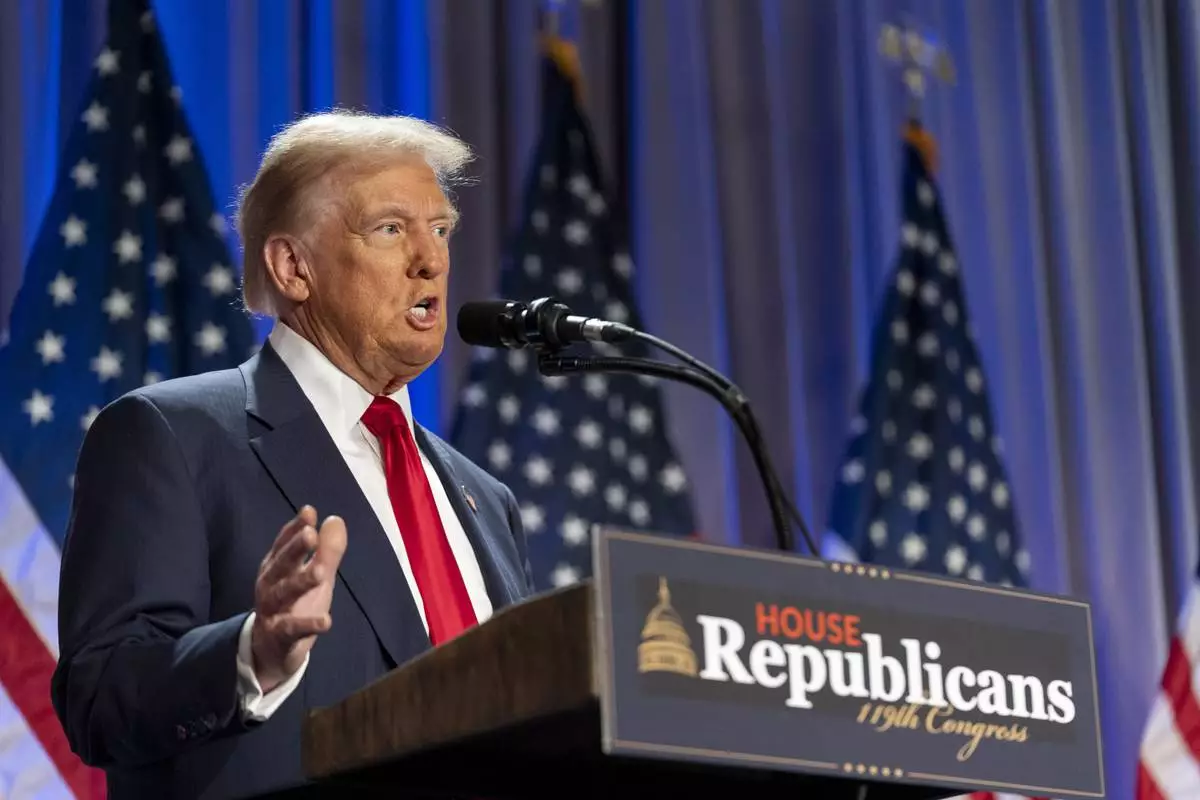
President-elect Donald Trump speaks at meeting of the House GOP conference, Wednesday, Nov. 13, 2024, in Washington. (AP Photo/Alex Brandon)


